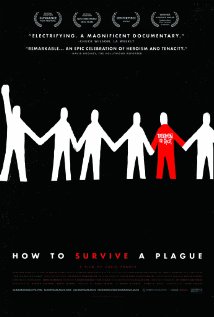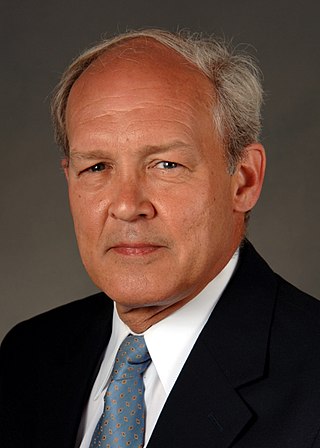Related Research Articles

AIDS Coalition to Unleash Power is an international, grassroots political group working to end the AIDS pandemic. The group works to improve the lives of people with AIDS through direct action, medical research, treatment and advocacy, and working to change legislation and public policies.
Protease inhibitors (PIs) are medications that act by interfering with enzymes that cleave proteins. Some of the most well known are antiviral drugs widely used to treat HIV/AIDS and hepatitis C. These protease inhibitors prevent viral replication by selectively binding to viral proteases and blocking proteolytic cleavage of protein precursors that are necessary for the production of infectious viral particles.

Ritonavir, sold under the brand name Norvir, is an antiretroviral drug used along with other medications to treat HIV/AIDS. This combination treatment is known as highly active antiretroviral therapy (HAART). Ritonavir is a protease inhibitor and is used with other protease inhibitors. It may also be used in combination with other medications to treat hepatitis C and COVID-19. It is taken by mouth. Tablets of ritonavir are not bioequivalent to capsules, as the tablets may result in higher peak plasma concentrations.

Michael Callen was an American singer, songwriter, composer, author, and AIDS activist. Callen was diagnosed with AIDS in 1982 and became a pioneer of AIDS activism in New York City, working closely with his doctor, Dr. Joseph Sonnabend, and Richard Berkowitz. Together, they published articles and pamphlets to raise awareness about the correlation between risky sexual behaviors and AIDS.

Indinavir is a protease inhibitor used as a component of highly active antiretroviral therapy to treat HIV/AIDS. It is soluble white powder administered orally in combination with other antiviral drugs. The drug prevents protease from functioning normally. Consequently, HIV viruses cannot reproduce, causing a decrease in the viral load. Commercially sold indinavir is indinavir anhydrous, which is indinavir with an additional amine in the hydroxyethylene backbone. This enhances its solubility and oral bioavailability, making it easier for users to intake. It was synthetically produced for the purpose of inhibiting the protease in the HIV virus.

Darunavir (DRV), sold under the brand name Prezista among others, is an antiretroviral medication used to treat and prevent HIV/AIDS. It is generally recommended for use with other antiretrovirals. It is often used with low doses of ritonavir or cobicistat to increase darunavir levels. It may be used for prevention after a needlestick injury or other potential exposure. It is taken by mouth once to twice a day.
Treatment Action Group (TAG) is a U.S.-based organization that has been prominent within the movement of HIV/AIDS activism. Being formed in 1991, it has possessed the goals of working with worldwide efforts to increase research on treatments for HIV and for deadly co-infections that affect individuals with HIV, such as hepatitis C and tuberculosis, as well as spur on greater access to and efficient usage of already available treatments. The group additionally monitors research on a possible HIV vaccine and on fundamental science aimed at understanding the pathogenesis of HIV/AIDS.
Gregg Gonsalves is a global health activist, an epidemiologist, an associate professor at Yale School of Public Health and an associate professor (adjunct) at Yale Law School. As well as being co-director of Yale Law School's Global Health Justice Partnership, Gonsalves is the public health correspondent of the progressive magazine The Nation.
Martin "Marty" Delaney was an advocate for HIV/AIDS treatments. In 1985, he founded Project Inform, an education and public policy advocacy group concerned with HIV and AIDS, and continued to lead the organization until 2008. Delaney's efforts to streamline the US Food and Drug Administration's drug approval process have been credited with saving thousands of people from early AIDS deaths.
Lawrence D. Mass, M.D. is an American physician and writer. A co-founder of Gay Men's Health Crisis, he wrote the first press reports in the United States on an illness later became known as AIDS. He is the author of numerous publications on HIV, hepatitis C, STDs, gay health, psychiatry and sex research, and on music, opera, and culture. He is also the author/editor of four books/collections. In 2009 he was in the first group of physicians to be designated as diplomates of the American Board of Addiction Medicine. Since 1979, he has lived and worked as a physician in New York City, where he resided with his life partner, writer and activist Arnie Kantrowitz. Having written for the New York Native since the 1970s, he currently writes a column for The Huffington Post. An archival collection of his papers are at the New York Public Library.

How to Survive a Plague is a 2012 American documentary film about the early years of the AIDS epidemic, and the efforts of activist groups ACT UP and TAG. It was directed by David France, a journalist who covered AIDS from its beginnings. France's first film, it was dedicated to his partner Doug Gould who died of AIDS-related pneumonia in 1992. The documentary was produced using more than 700 hours of archived footage which included news coverage, interviews as well as film of demonstrations, meetings and conferences taken by ACT UP members themselves. France says they knew what they were doing was historic, and that many of them would die. The film, which opened in select theatres across the United States on September 21, 2012, also includes footage of a demonstration during mass at St. Patrick's Cathedral in 1989.

Peter Staley is an American political activist, known primarily for his work in HIV/AIDS activism. As an early and influential member of ACT UP, New York, he founded both the Treatment Action Group (TAG) and the educational website AIDSmeds.com. Staley is a primary figure in the Oscar-nominated documentary How to Survive a Plague.
Patrick Spencer Cox was an American HIV/AIDS activist. He was involved in ACT UP New York and the Treatment Action Group during the height of the AIDS Crisis in New York. He helped facilitate the production of protease inhibitors, which revolutionized AIDS care in the 1990s.

United in Anger: A History of ACT UP is a 2012 documentary film directed by Jim Hubbard about the beginning and progress of the AIDS activist movement from the perspective of the people fighting the epidemic. Archival footage with oral histories of members of ACT UP depicts the history of civil disobedience against corporate greed, social indifference, and government negligence in the face of AIDS. Producers Jim Hubbard and Sarah Schulman created a documentary film that captures the efforts of ACT UP to remove the stigma associated with AIDS, fast track experimental drug research and testing, and provide a context for the devastating effects of the epidemic. Film includes several actions by ACT UP: Seize Control of the FDA, Stop the Church, and Day of Desperation.

Lauren V. Wood is an American allergist, immunologist, and staff physician at the National Cancer Institute (NCI) at the National Institutes of Health (NIH) in Bethesda, Maryland, where she has served as a principal investigator. She is known for conducting studies of vaccines for cancer, Human papillomavirus (HPV), Hepatitis C, and HIV especially for use with children, teens and young adults. She holds the rank of captain in the U.S. Public Health Service (PHS).

Social and political activism to raise awareness about HIV/AIDS, as well as to raise funds for effective treatment and care of people with AIDS (PWAs), has taken place in multiple nations across the world since the 1980s. As a disease that began in marginalized populations, efforts to mobilize funding, treatment, and fight discrimination have largely been dependent on the work of grassroots organizers directly confronting public health organizations as well as politicians, drug companies, and other institutions.

Hugh Auchincloss Jr. is an American immunologist and physician serving as the acting director of the National Institute of Allergy and Infectious Diseases since 2023. He previously served as the principal deputy director between 2006 and 2022. He was previously a transplant surgeon and professor of surgery at Harvard Medical School and researched at Massachusetts General Hospital for 17 years.
Richard Elovich is a social psychologist, writer, performance artist, and AIDS activist focusing on harm reduction and low-threshold approaches to drug treatment.
Ivy Kwan Arce is a first-generation Chinese American HIV survivor, HIV/AIDS activist and artist. She is a surviving member of the People with Aids (PWA) Health Group and was part of grassroots organizations such as the Asian Pacific Islander Coalition on HIV/AIDS (APICHA) and God's Love We Deliver. Today Kwan Arce is a longstanding activist with groups such as ACT UP and TAG.
Ortez Alderson was an African American AIDS, gay rights, and anti-war activist and actor. A member of LGBT community, he was a leader of the Black Caucus of the Chicago Gay Liberation Front, which later became the Third World Gay Revolution, and served a federal prison sentence for destroying files related to the draft for the Vietnam War. In 1987, he was one of the founding members of ACT UP in New York City, and helped to establish its Majority Action Committee representing people of color with HIV and AIDS. Regarded as a "radical elder" within ACT UP, he was involved in organizing numerous demonstrations in the fight for access to healthcare and treatments for people with AIDS, and participated in the group's meetings with NYC Health Commissioner Stephen Joseph as well as the FDA. In 1989, he moved back to Chicago and helped to organize the People of Color and AIDS Conference the following year. He died of complications from AIDS in 1990, and was inducted posthumously into the Chicago LGBT Hall of Fame.
References
- 1 2 3 4 5 6 7 8 "Marked Man". POZ. 1998-02-01. Retrieved 2018-10-19.
- 1 2 3 4 5 6 7 8 9 "Mark Harrington". www.treatmentactiongroup.org. Retrieved 2018-11-09.
- 1 2 3 4 5 6 7 8 9 10 Victory deferred: how AIDS changed gay life in America, John-Manuel Andriote, University of Chicago Press, 1999 ISBN 978-0-226-02049-5
- 1 2 3 4 5 Opar, Alisa (2007-02-28). "Spotlight on... Mark Harrington". Nature Medicine. 13 (3): 270. doi: 10.1038/nm0307-270 . ISSN 1078-8956. S2CID 37029702.
- 1 2 3 4 5 6 7 "The Alumni - November–December '97 - A Different Person". harvardmagazine.com. Retrieved 2018-10-19.
- 1 2 3 4 5 6 "A genius for activism – Treatment Action Group Policy Director Mark Harrington", The Progressive, Dec, 1997, Bob Blanchard
- 1 2 3 4 "Mark Harrington - MacArthur Foundation". www.macfound.org. Retrieved 2018-11-09.
- ↑ "Richard Harrington Obituary (2019) San Francisco Chronicle". Legacy.com .
- ↑ Specter, Michael (2020-04-10). "How Anthony Fauci Became America's Doctor". The New Yorker . New York City: Condé Nast . Retrieved 2020-04-14.
- ↑ Schulman, Sarah (2021). Let the record show: A political history of ACT UP New York, 1987-1993. Farrar, Straus and Giroux. p. 170. ISBN 978-0-374-18513-8. OCLC 1182573401.
{{cite book}}: CS1 maint: date and year (link) - ↑ Staley, Peter (2021). Never Silent. Chicago Review Press. p. 179. ISBN 9781641601429.